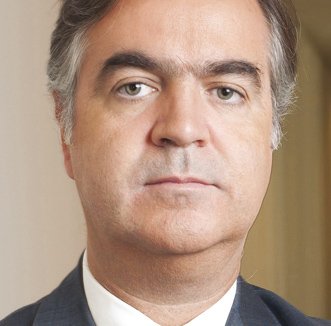Making the global business connections – PLMJ
Businesses want to become more international in response to regional economic downturns, the challenge is to find the most coherent way of making it happen
Si los despachos portugueses quieren responder adecuadamente a los nuevos retos de sus clientes, no solo tienen que pensar desde una perspectiva global sino también actuar a nivel internacional, dice Manuel Santos Vítor, Socio Co-director de PLMJ, el despacho más grande de Portugal. Ello significa atender a las necesidades de los clientes donde quiera que estén.
If Portuguese law firms are to respond adequately to the very evident challenges now facing their clients they have to not only think globally but to act globally, says Manuel Santos Vítor, co-Managing Partner of PLMJ, Portugal’s largest law firm.
“Market pressures mean that Portuguese companies, like others elsewhere, have to find new markets in order to help offset reductions in domestic revenues. This in many instances means looking to expand not only the established international businesses they may already have but also developing new operations.”
From a Portuguese perspective, Angola, Mozambique and Brazil inevitably feature high on the list of priority markets for many businesses, but these are not straight forward places in which to do business.
Given the high strategic risk of such moves to clients it may not however be enough to simply offer an introduction to an unknown lawyer in an untested referral network, he believes.
“For the Portuguese there are obvious cultural ties to the lusophone countries but even sharing a common language can only ever get you so far. What is crucial is that clients are in capable and experienced hands. They have to have the correct intelligence as to what is happening on the ground and how it might affect – positively or negatively – their own specific plans.”
In any event, many General Counsel accept that the services firms can offer in such places extend much further than managing the mere technical legal aspects of a transaction, or hand-holding in an unfamiliar jurisdiction.
“Sophisticated General Counsel understand that the right legal team can play a vital facilitative role in getting things done. What is often important is not only what to do but what not to do. Many of the ways in which business is done in emerging jurisdictions, are simply not written down in the law. There is a practice or custom of implementation of the law that is essential to understand and know and that can only be provided from those emerging jurisdictions”
His own firm has longstanding ties to Angola, Mozambique, Brazil and Macao but has also this year signed an accord with one of China’s largest law firms Dacheng Law Offices on an exclusive basis as regards investment into and out of the lusophone countries. Additional agreements are likely to follow, formalizing long existing relationships.
Santos Vítor emphasises the historically very global view taken by the leading Portuguese firms and consequently Lisbon offers an increasingly significant conduit for international as well as domestic businesses’ambitions. Many European companies, he says, already prefer to manage their Angolan or Mozambique needs through Lisbon rather than going direct to Luanda or Maputo where they do not know anyone. Many European companies, he says, already prefer to manage their Angolan or Mozambique needs through Lisbon rather than going direct to Luanda or Maputo. “In our experience, what clients want to know is that someone they trust is dealing with their matter, that they have the necessary expertise, can manage complex issues, and will respond in the way they are used to. If they are only two hours away rather than eleven, then better still.”
He sees an increasing flow of investment also between lusophone countries, as local economies develop and companies look to expand and diversify away from their own markets, while significant Brazilian and Angolan investment is also now targeting Portugal.
“Recent years have seen a new phenomena: inbound investment from the former Portuguese colonies with significant stakes having been acquired in the leading energy, finance and real estate companies. But here as elsewhere, the needs of investors are the same – they want the right legal team on the job, with the right level of expertise who are able to translate what may be unfamiliar legal or commercial concepts.”
With the economic downturn affecting Portugal unlikely to yield over the coming year, Santos Vítor sees such developments only increasing. Portuguese companies will continue to look to new markets for their exports and in which to do business, while international investors may find increased opportunities within Portugal and across the lusophone economies.
“The global downturn has meant that the desire to expand internationally while not new may however have taken on an increased impetus and relevance. The challenge always is to find the best and most joined-up way of making it happen.”












